What do women really want in their personal care products?
The answer seems to continually haunt cosmetic, personal care I&I (Industrial and Institutional), turnkey packagers as well as product manufacturers, mainly because the modern woman has a dynamic educated, sophisticated and fickle list of wants and needs that can and do change on a dime, pending research revelations, trending application styles for fragrances, natural and organic skincare products and diverse aspects of the shopping experience.

Knowledge concerning fragrances in personal care products has evolved over the course of last two decades and so have women’s tastes and feelings about the products they buy.
Cosmetics and Makeup Industry Statistics
Since the early twentieth century, a handful of multi-national organizations including L’ Oréal, Esteé Lauder, Proctor & Gamble and Shiseido, have dominated the cosmetic and personal care product industry, which includes: toiletries, oral cosmetics, hair care, make-up, fragrances and deodorants.
In 2015, North America, led by the United States, comprised 24.7% of the global cosmetic market and was considered at that time to be the most precious beauty and personal care market in the world, netting US $80 billion.
A 2016 breakdown of personal care/cosmetic sales revealed that within the United States, the sale of foundations generated about $985 million.
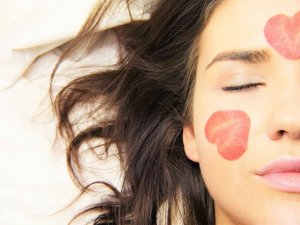
The second most profitable segment was eye cosmetics, particularly mascara, with sales revenue of $941.1 million.
Also included in this category were eyeliners, eye shadows and eyebrow make-up, which together earned more than $ 2.1 billion. Lipstick sales gleaned about $630 million.
Fabrizio Freda, the President & CEO of Estee Lauder had this to say about personal care and beauty product statistics: “In the U.S., “women are spending more on beauty products, 13% more on foundation and 18% more on concealer. Thirty-five percent of women use more than five makeup products every day and 80% use three skin care products every day. Six mascaras are sold per minute in the U.S…”
Recent Studies and Surveys About Personal Care Products
A recent survey indicated that 89 percent of American women purchase natural and organic personal care products.
Explore our commitment to Cradle-to-Cradle fragrances.
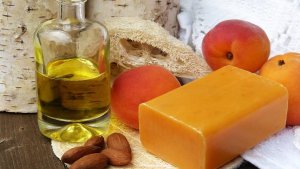
According to the Environmental Working Group (EWG) and not surprisingly, women are known to use more natural and organic personal care products than men and are exposed to more ingredients on a daily basis. On average, women utilize 12 products containing 168 unique ingredients every day.
Male participants in this survey indicated that they use 6 products daily featuring 85 unique ingredients.
How Have Women’s Fragrance Tastes Changed Over The Years?
The cold hand of technology, improvements in global telecommunications and the explosive growth of the Internet make access to world events and knowledge about available organic and natural personal care products accessible via the simple click of a mouse.
Complexities in preferences in personal care change within the blink of an eye.
Females read the list of ingredients and often seek out natural personal care products, which run the gamut from skin and hair care to all kinds of natural and organic bath products.
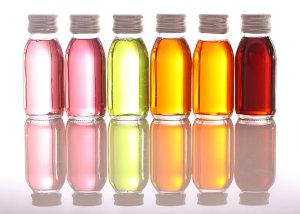
They are not so fooled by attractive packaging, and seek instead to know exactly what they are applying on their bodies.
There has also been a shift to natural personal care products from synthetic selections, which have worked very well in the past.
Successful fragrance manufacturers for top selling personal care brands need to be prepared for every twist and turn on the wants and needs list of their consumer base, and it’s no accident that our chief perfumer‘s prize-winning scents are used as stand-alone fragrances in many lotions, soaps, bath, hair care, skin care, and natural and organic personal care products for a multitude of domestic and global brands.
Technology Has Influenced Consumer Product Choices
Jo Malone, the founder of the beauty brand of the same name who has now founded another brand called Jo Loves states that: “Technology is impinging on the way consumers want to live. With all the technology, we see consumers craving to bring humanity back to an increasingly impersonal world and increasingly impersonal shopping experience. We need to find ways to simplify the overwhelming complexity of the world we live in.”
In terms of the beauty and personal care products industry specifically, Camillo Pane, the CEO of Coty, had this to say: “Brands are created at the speed of light. The beauty industry is becoming increasingly complicated. Our instinct is to dislike complexity. But we have to either embrace it, or we’re not going to be around… The art of leading through change is understanding what has not changed and how to leverage our historical strengths.”
Factors Influencing Changes in Personal Care Products
According to Mike George, the president and CEO of QVC, there are four reasons for these shifts in thinking and the purchasing of personal care products.
One concerns an erosion of trust in society; another a race to the bottom, which translates into everyone trying to compete with each other by selling their products at the lowest price.
Thirdly, modern female consumers crave authenticity, and lastly, influences for purchases keep shifting, like sand through an hourglass.
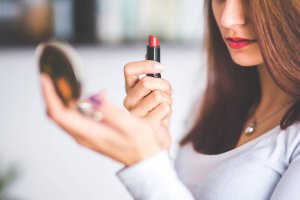
In addition, the boundaries of the personal care products/beauty industry have blurred significantly and have affected the sales of personal care products.
Some of these include: manufacturing inexpensive products that are marketed as luxury items; the growing desire for consumers to blend beauty and health and wellness products together as one purchase and the growing trend to replicate spa experiences in the home.
Marketing Techniques for Women’s Personal Care Products
The marketing of personal care products, particularly fragrances, can be tricky business because the appeal is not what it may seem to be on the surface.
More specifically, it is not a matter of convincing women to like products because they make them feel better.
While that is an accurate approach to a certain degree, the core of advertising for beauty and personal care products must address an even deeper truth, which lies in the realm of human emotion and the ability to express one’s individuality.
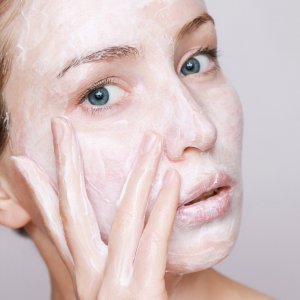
Marketing techniques for personal care products must incorporate the modern feminine mindset, which has to do with total acceptance of the way they look. In the past, purveyors have marketed products relating to beauty care as ways to address physical limitations, tapping into the way women had been taught to feel about themselves.
The newer strategy is to foster acceptance and focus on the way things are.
Alan Ennis, President & CEO of Glansaol and former CEO of Revlon states: “… If a brand was in a department store, it had demonstrators. The big brands were leading the charge and they defined what consumers would be using. Celebrities defined what would happen and consumers wanted and aspired to be a celebrity. We used traditional media… But today… the pace of change is so fast that what’s true today probably won’t be true tomorrow. Bigger brands are in slight decline and the independent brands are growing… Consumers don’t believe celebrities. They want something from a friend, colleague or a family member and not from a billboard. And social media has taken over from traditional media…”
Alpha Aromatics and Women’s Personal Care Products
We provide the most innovative cutting edge technologies in the creation of our extensive collection of scents that are used in lines of personal care products and fragrances. The subtle and unmistakable power of fragrance is our lasting connection to our ever-growing customer base.

Our perfumers are experts in blending the art of scent with the latest scientific trends. Always aware that one size never fits all, each fragrance in any product line works best with its own range of scents.
Which Scents Work With Which Product Types?
We recently published a guide to choosing the perfect scent for personal care products, but to put it briefly, floral, fruity, fantasy, fresh and clean are among the most popular scents.
These work best when used with specific products such as those delineated below.
- Soap and Bath Products – Floral is best with soaps and other bath products, which is derived by the careful blending of essential oils. These oils emit distinctive aromas and contain therapeutic aspects.
- Deodorants – Fantasy fares well with deodorants, as do botanicals and herbs, which contain natural ingredients such as green tea or strong, lemony, sharp and fresh lemongrass and authentic earthy scents.
- Shampoos – Shampoos also contain essential oils that both appeal to our sense of smell and meet the needs of specific hair types. Lavender, carrot seed and rosemary are generally beneficial for all types of hair.
- Facial Creams and Lotions – Facial cream manufacturers focus on scent and added skincare benefits when creating these products. Essential rose oil or rose water is both very popular additives in creams and lotions because they truly capture the flower’s intoxicating and fragile aroma.
- Lip Products – Lipstick has its own potent mystique both for its visual allure and for its scent. Color and fragrance options are manifold, with a current trend towards darker lip colors. Some popular scents are floral while others are distinctly fruity. Some of the most popular ones include: cumin, musk, vanilla, orange flower, neroli and narcissus.
In Conclusion
Adopting a successful scent for a cosmetic or personal care product requires flexibility, as all fragrances that are mixed and matched must coalesce as a pleasing olfactory experience.
Our teams at Alpha Aromatics understand that successful fragrances, whether destined to stand alone or be incorporated into a personal care product line, are those that evoke emotion and connect to those hidden crevices of memory we all have tucked away somewhere deep in our minds.
Keeping abreast of the vast changes in technology involved in the manufacture of personal care products and alterations in preferences is both essential and time-consuming.
If you’re a cosmetic, personal care I&I packager with turnkey opportunities, or you’re a manufacturer looking for advice on how to improve your personal care product line or to reduce your costs on fragrances, give our chief perfumers a shout today!
Final thoughts on personal care: Self-care is not self-indulgence. Self-care is self-respect. ~ Gateway –Women.com
Photo Credits: Pixabay and Jonas Neilson
 alpha aromatics®
alpha aromatics®